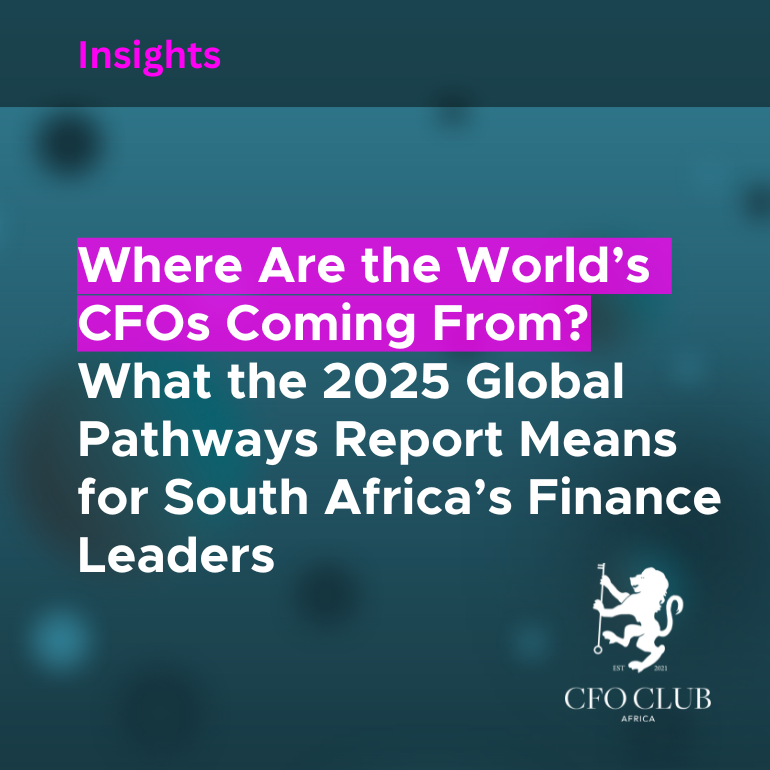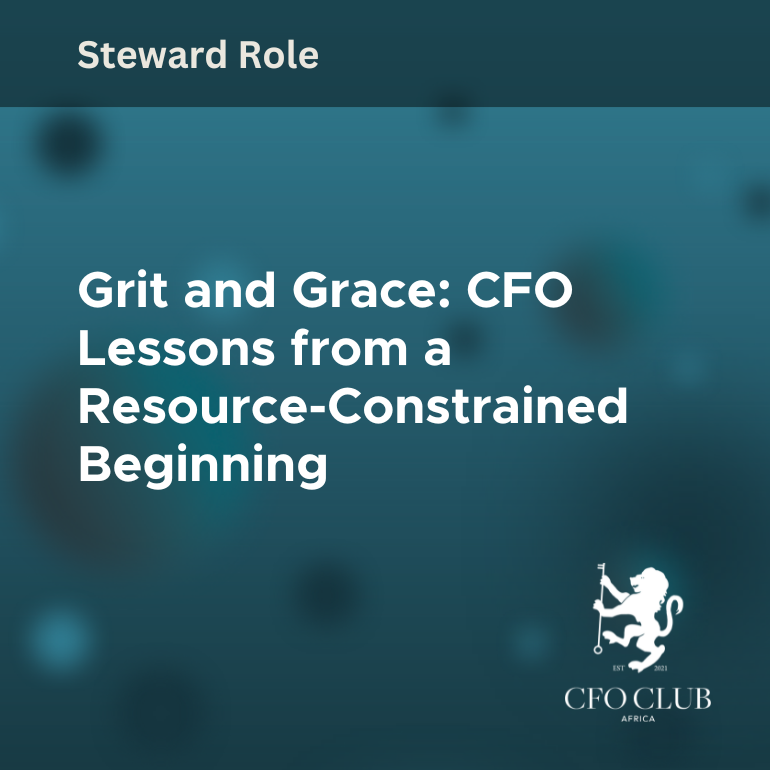Where Are the World’s CFOs Coming From?
What the 2025 Global Pathways Report Means for South Africa’s Finance Leaders
The role of the CFO is changing. Globally, boards are rethinking not just who they appoint, but why.
The 2025 CFO Pathways Report from Eton Bridge Partners provides a detailed view of 6,400 recent CFO appointments across ten major economies. For South African finance professionals, the trends are clear and increasingly relevant.
Global CFO Appointments: Key Takeaways
1. Sector loyalty is back on top
Most countries are now appointing CFOs from within the same industry. Japan and Australia reported sector loyalty above 95 percent.
For South African professionals, this reinforces the value of developing deep industry expertise. Moving between sectors is possible, but the trend favors those who stay and lead within their domain.
2. Internal promotions are increasing
Internal appointments are rising across the board. In countries such as the US, UK, Australia, and Japan, internal promotions account for the majority of new CFOs.
This signals an urgent need for South African organisations to prioritise structured leadership development. Building a finance bench internally is no longer a preference. It is a competitive necessity.
3. Diversity is improving, but performance remains the deciding factor
Female CFO appointments globally reached 26 percent, with China and Sweden leading at 30 and 28 percent respectively.
South Africa faces its own equity challenges. But diversity initiatives must be paired with clear leadership pathways. Proven delivery still drives appointment decisions, especially in high-stakes environments.
4. Private equity is shaping CFO readiness
PE-backed businesses are accelerating demand for commercially astute CFOs, especially in the US, UK, Germany, Sweden, and China.
South Africa’s PE market is smaller but growing. CFOs must prepare to operate in high-pressure, outcome-driven environments where fundraising, exits, and transformation are part of the daily brief.
5. First-time CFOs are being considered, but selectively
Roughly 30 percent of CFO appointments were first-timers, most of whom brought strong sector credibility or internal track records.
Aspiring CFOs in South Africa can take encouragement from this trend. However, readiness is key. Candidates must bring momentum, a demonstrated ability to lead, and support from internal stakeholders.
Implications for the CFO Club Community
This report validates what we are already seeing in our own networks. The CFO role is evolving. It is no longer limited to financial stewardship. Today’s CFOs are central to business strategy, operational execution, and digital transformation.
That is why the Chartered CFO (CCFO) designation, offered by CIBA and registered with the South African Qualifications Authority (SAQA), is more relevant than ever. It formally recognises CFOs who operate at this level of strategic leadership and provides a clear benchmark of competency.
This aligns with the European CEN 476 initiative, which is currently working toward a global set of CFO competency standards. CIBA, through its participation in international bodies, is actively engaged in these developments to ensure South African CFOs remain globally competitive.
To keep pace with international trends, we must:
- Build deeper sector capacity within finance functions
- Promote internal succession with intent, not assumption
- Prepare CFOs to lead in private equity and transformation settings
- Address diversity gaps by enabling performance and visibility
- Adopt recognised standards and designations that validate strategic leadership
Looking Ahead
The outlook for 2026 points to continued evolution of the CFO role. The boundary between CFO and COO is becoming increasingly fluid. Boards are looking for leaders who can influence across departments, markets, and stakeholders.
For CFO Club members, this is a call to action. Use this global insight to inform your own development. Identify gaps. Build teams that are ready. And contribute to a stronger finance leadership ecosystem in South Africa.
The CFO title is no longer the end goal. It is the beginning of enterprise leadership.
Related Posts
How CFOs can keep and attract top talent
Talent shortage is the number one threat to business, according to a survey of leaders of the Fortune 500 companies. This is because the US is experiencing a strong demand for labour and low unemployment after COVID, dubbed ‘The Great Resignation’. The rest of the world is in the same predicament, although not always for […]
Playing It Smart with Idle Cash
How CFOs Are Turning Treasury into a Strategic Growth Engine If you’re still treating your treasury function like a glorified savings account, you’re leaving strategic value—and hard cash—on the table. Today’s corporate treasurer isn’t just keeping the lights on. They’re quietly driving value, managing risk, and influencing your ability to fund
Grit and Grace: CFO Lessons from a Resource-Constrained Beginning
Grit and Grace: CFO Lessons from a Resource-Constrained Beginning You haven’t earned the title of CFO until you’ve lied awake at night wondering how to pay salaries on Friday. You will not find that line in any corporate finance textbook, but it is something many CFOs have lived through. Not every financial leader begins their […]
Ethical Leadership Because Orange Jumpsuits Are Not a Good Look
Ethical Leadership Because Orange Jumpsuits Are Not a Good Look In today’s business world, ethics play a crucial role in corporate leadership. Leaders’ decisions impact not just their companies but also employees, customers, investors, and society at large. Ethical leadership is more than just following rules; it is about making decisions that are fai





